04 Pulmonary Circulation - Boards and Beyond
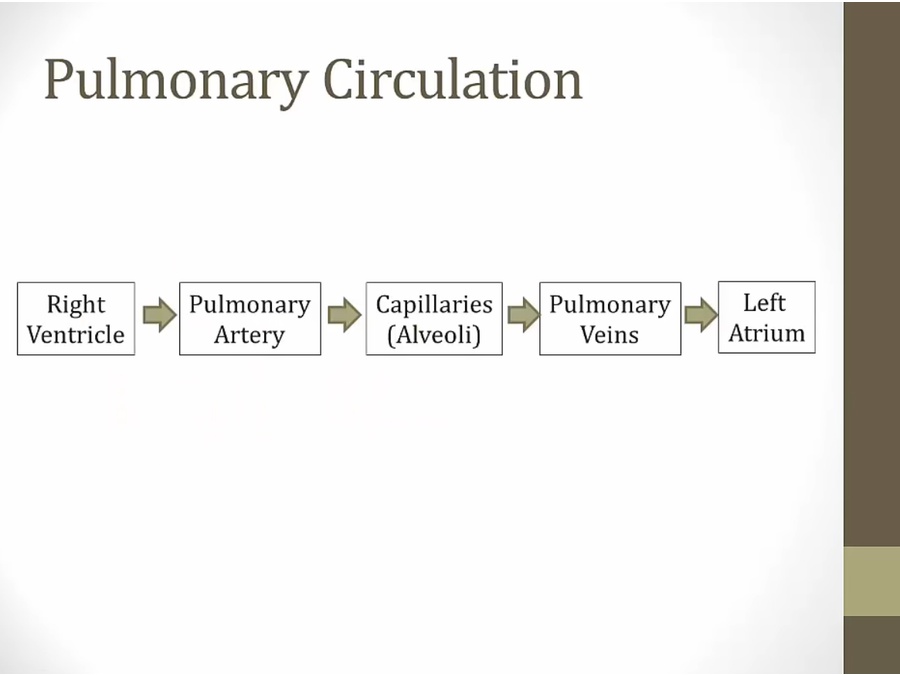
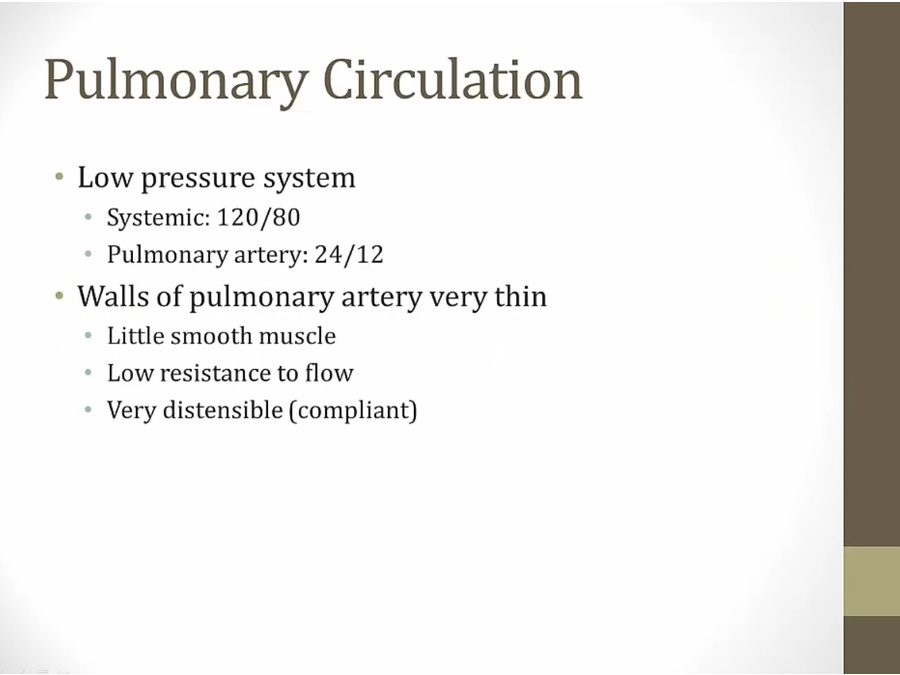
- lower p: doesn't need to go as far
Blood O2 Content
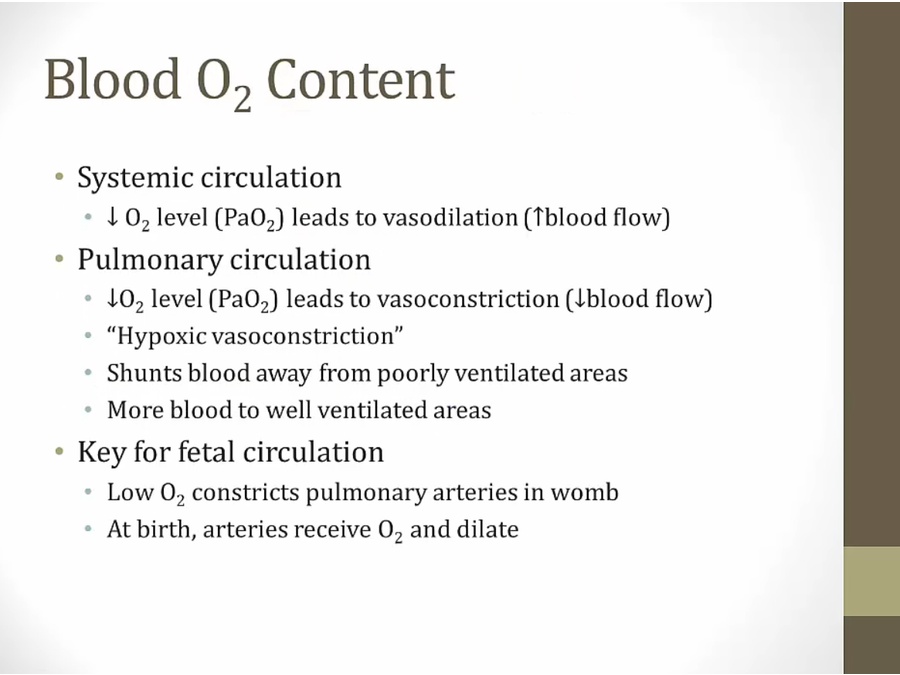
- fetal: less blood to lungs, not important in womb
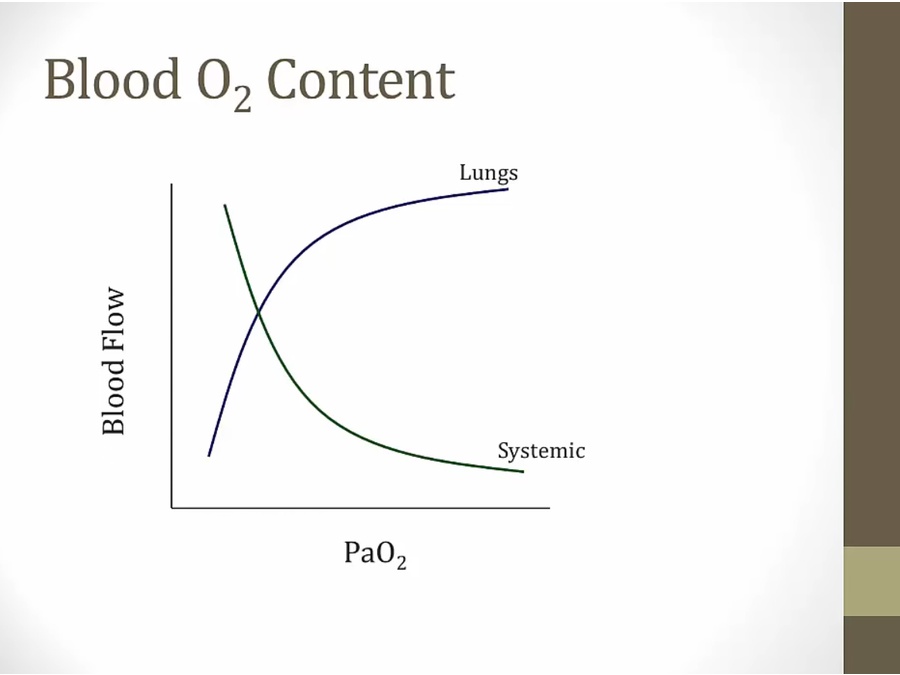
Diffusion
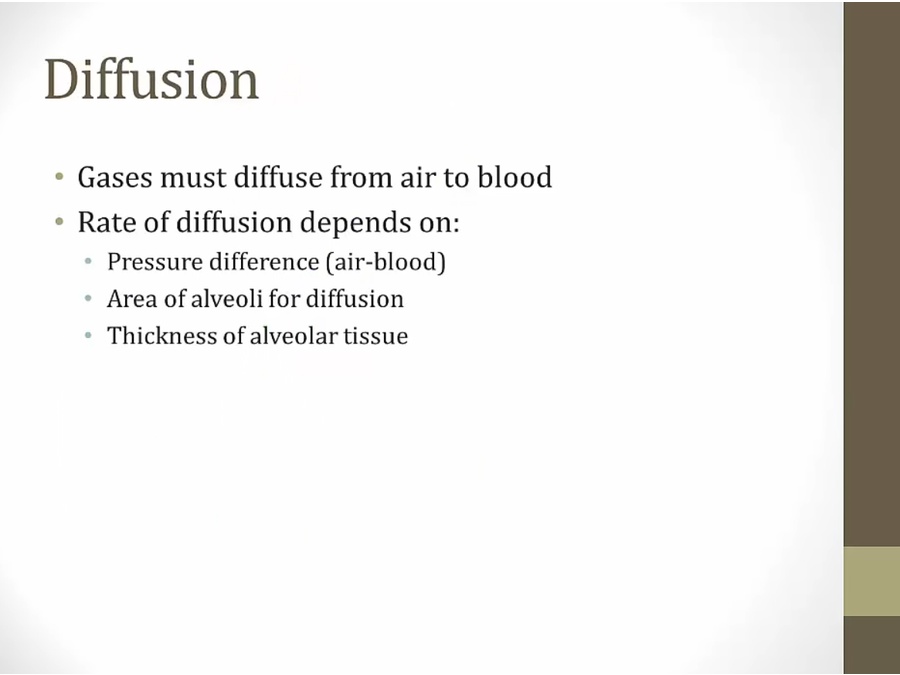
- more pressure difference of O2 in air/blood: more diffusion
- more area: more diffusion
- thickness: less diffusion
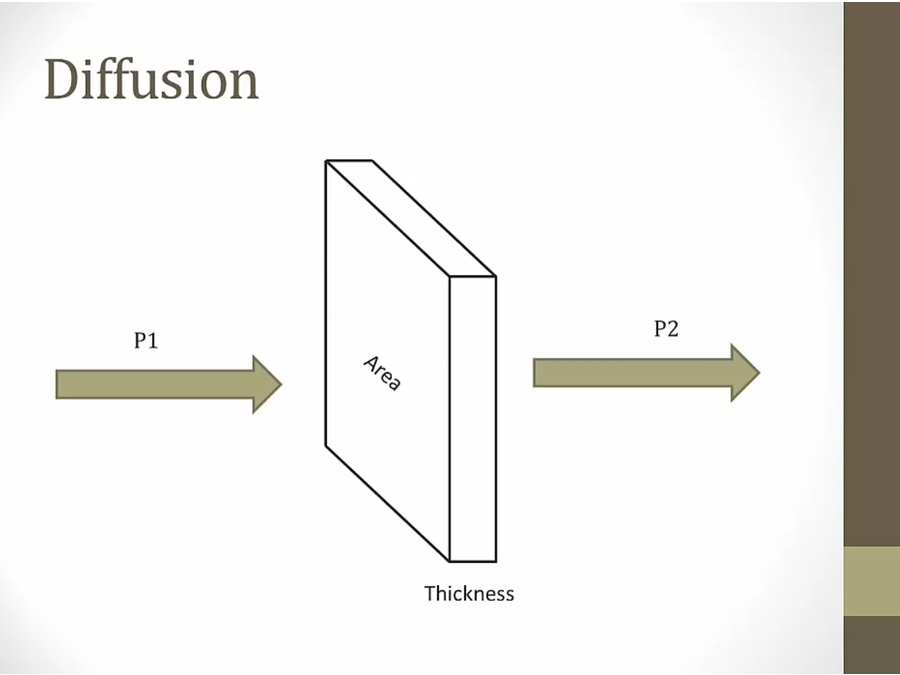
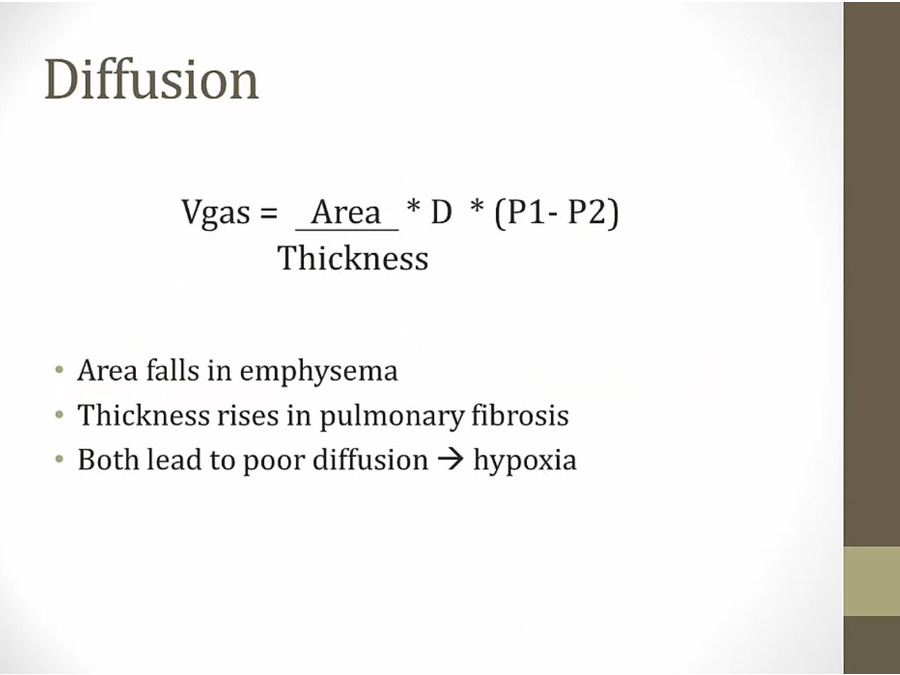
- emphysema: alveoli destroyed, low DLCO
- fibrosis: thicker, low DLCO
- diffusion of CO same as DLCO
Diffusion-Perfusion
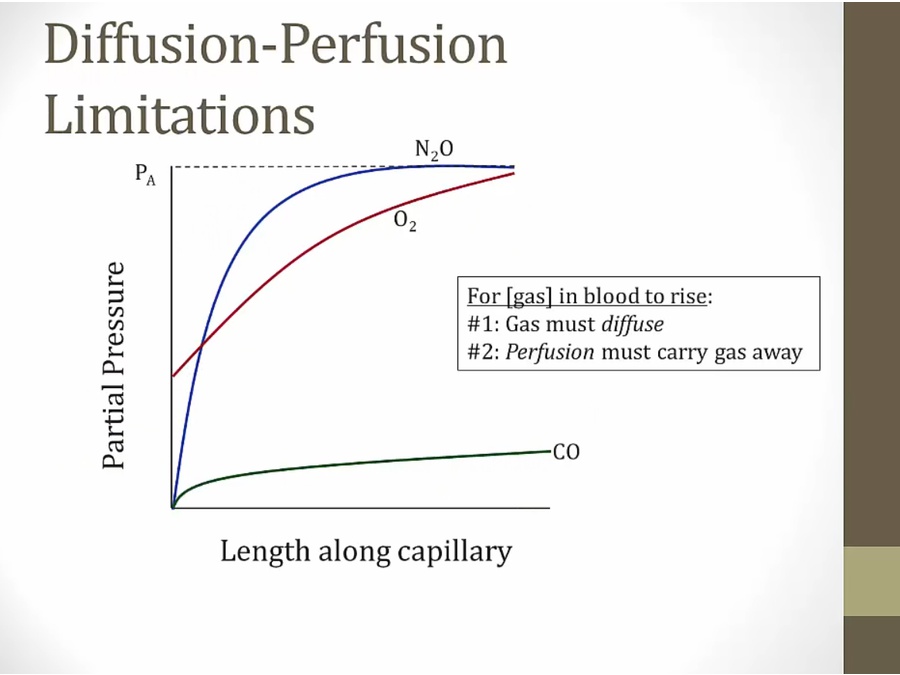
- infuse 3 gases into lungs at Pa concentration, ideally reach Pa concentration
- N2O: at length 0, no N2O diffuse into blood; diffusion rises very rapidly along capillary length to max value
- CO: rises slowly, never gets to maximum concentration
- O2: some O2 from veins at length 0, rise relatively rapidly until max value
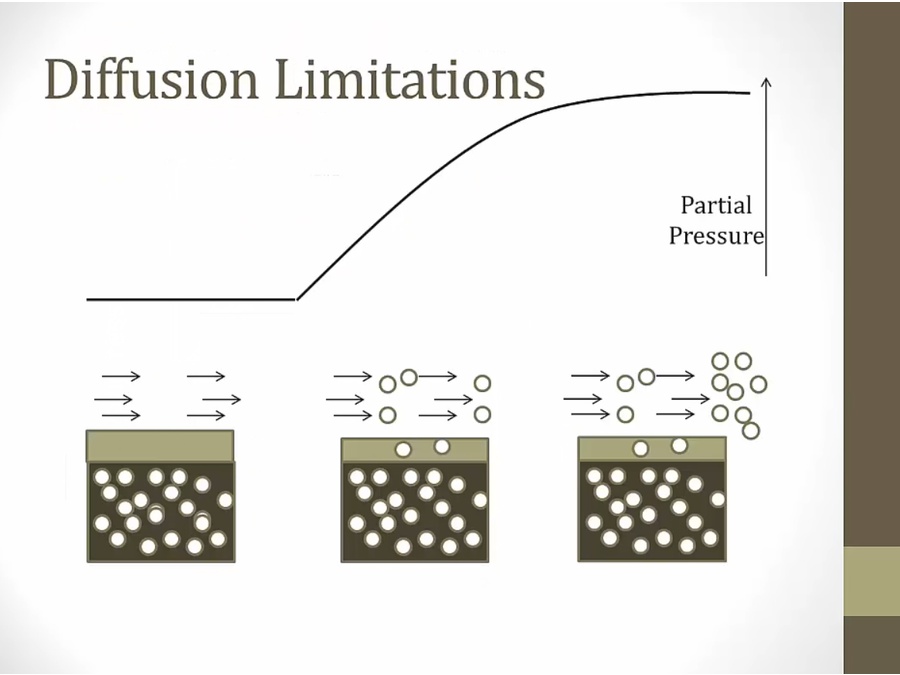
- gas must diffuse through and get carried away
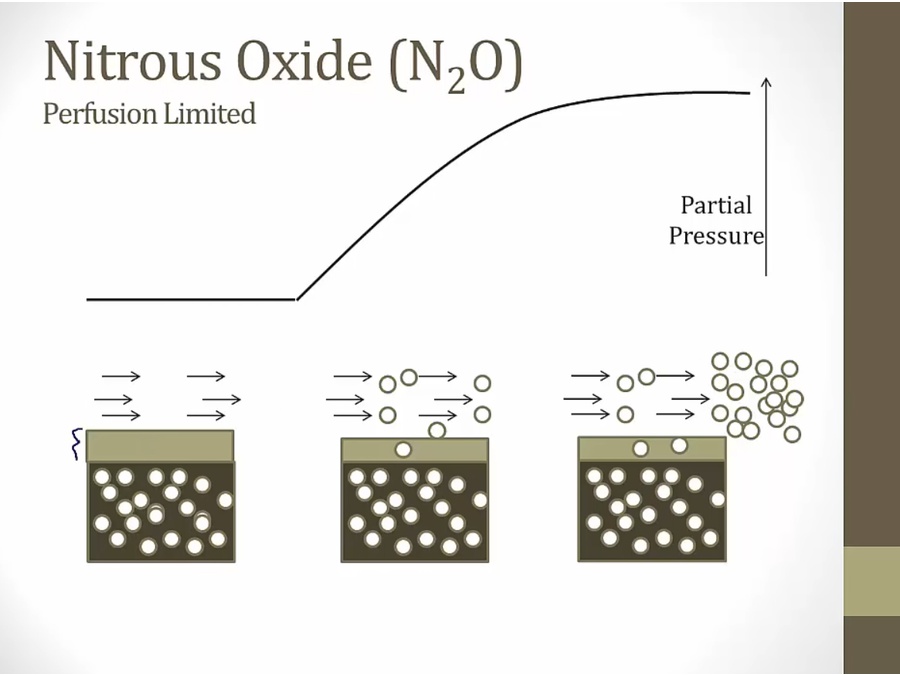
- N2O: barrier not a factor
- N2O rapidly diffuse through
- only determination for rate of rise of N2O is how fast blood flowing, carrying away molecules, rapid rise in partial pressure
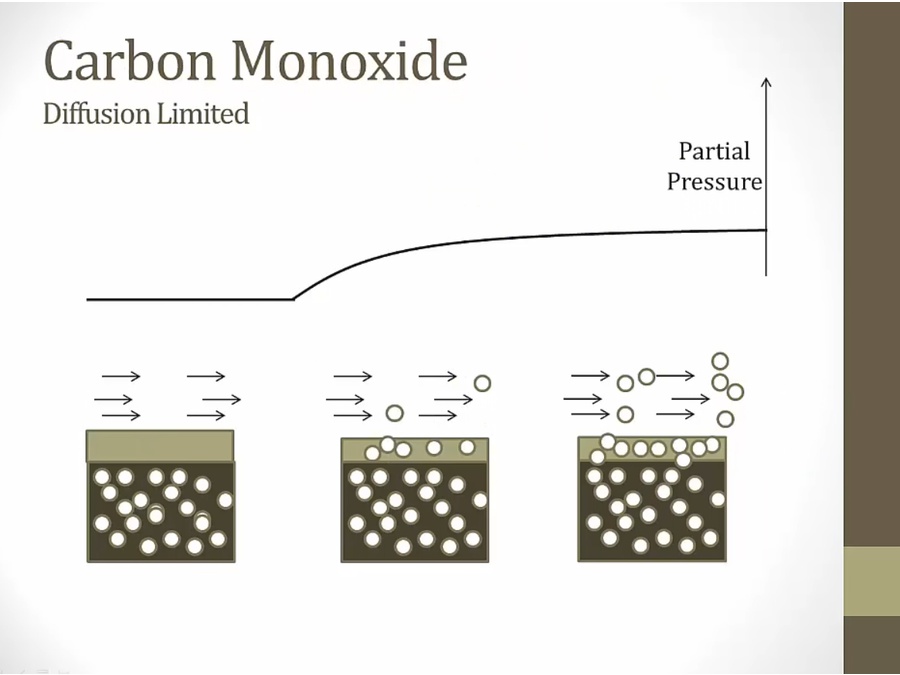
- barrier is major factor for diffusion
- slow rise
- diffusion main factor. Perfusion not a factor
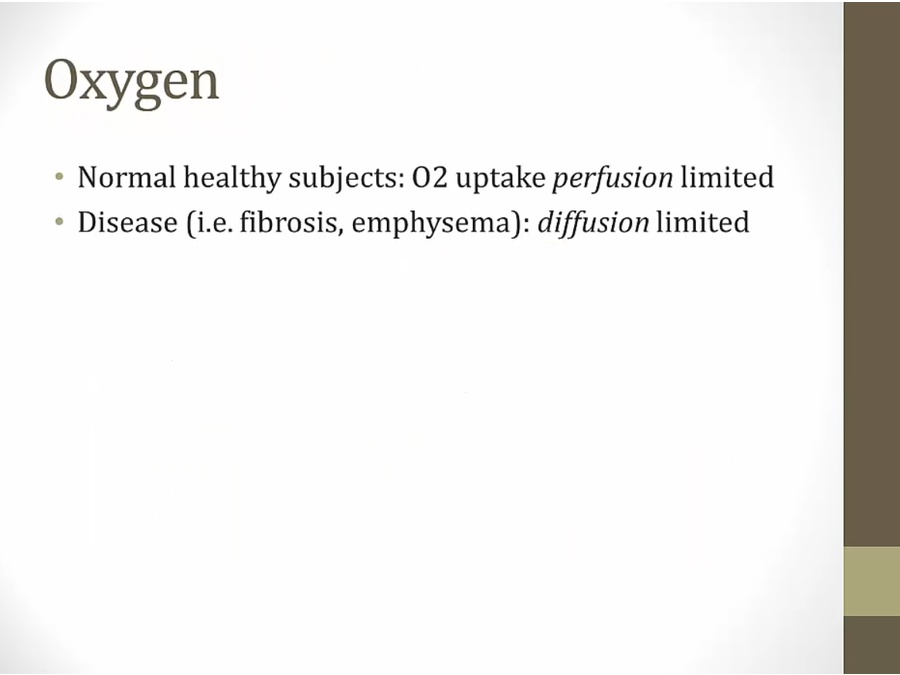
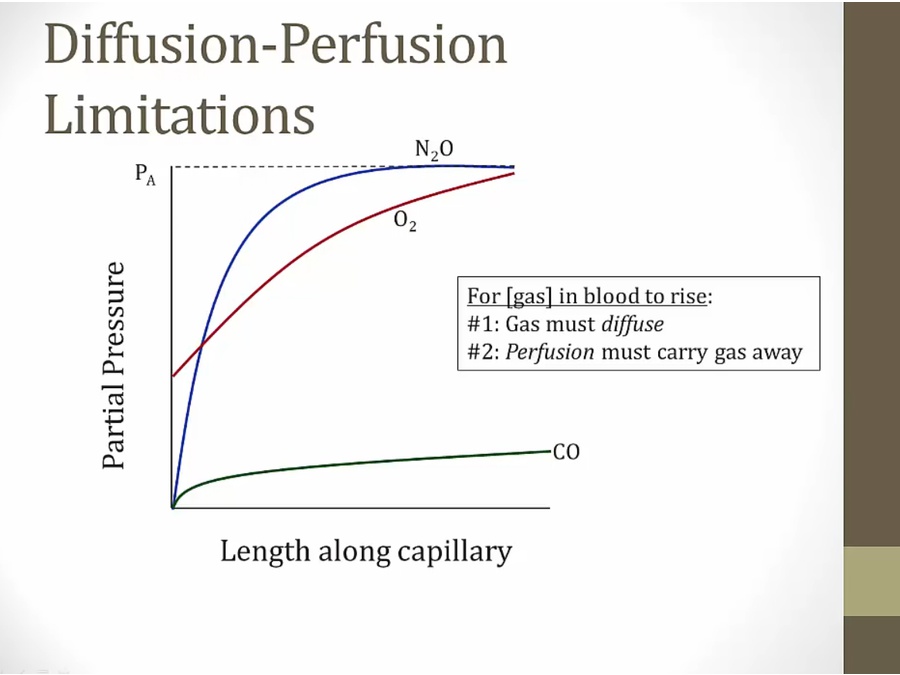
- N2O: only thing slow or speeds up concentration is blood flow rate
- O2: same
- CO: uptake limited by diffusion

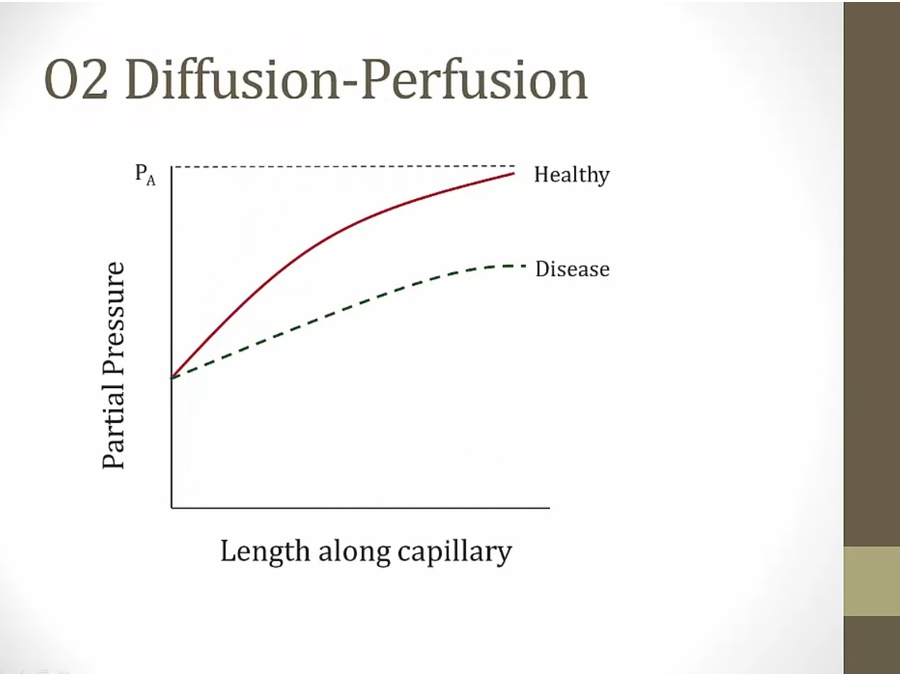
- diffusion limited
- concentration of O2 in blood falls = hypoxemic
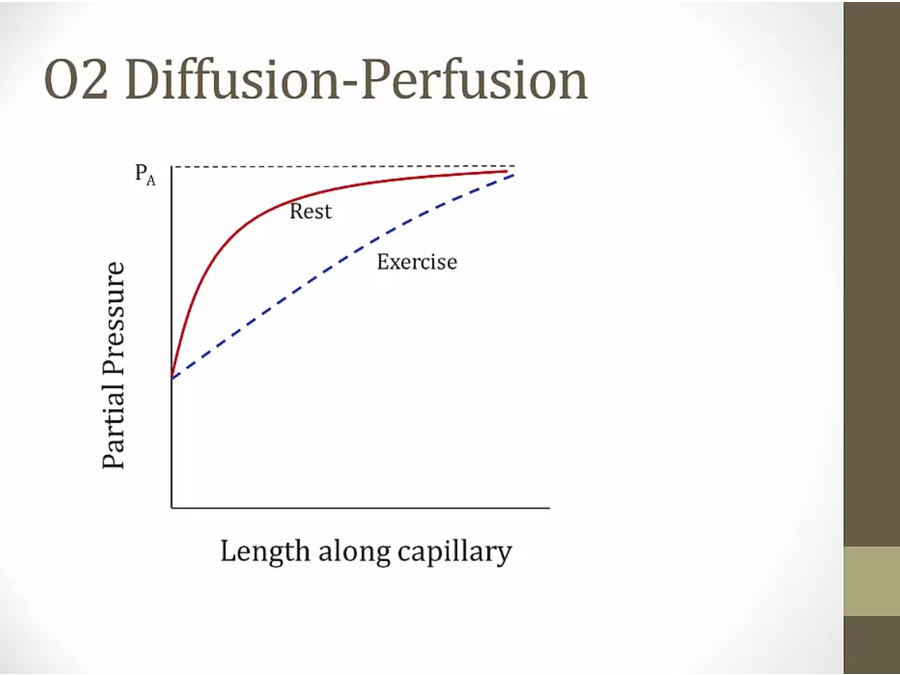
- at rest: blood flows slowly, lots of time to pick up O2
- exercise: blood flow faster, gets further before reach maximum, but still does even in patients exercising
- exercise alone should not make someone hypoxemic
Pulmonary Resistance
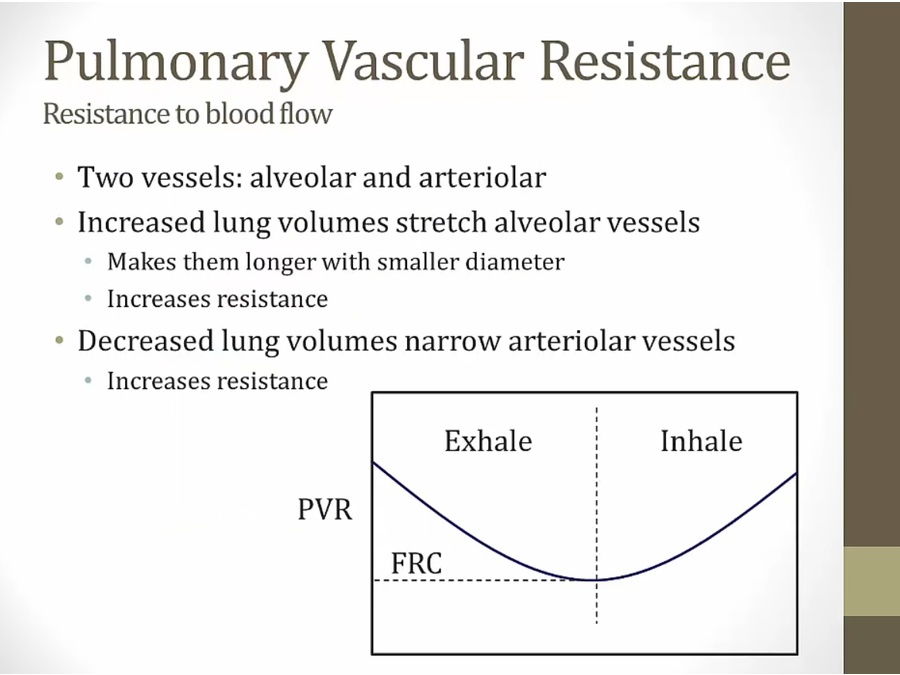
- alveolar: blood supplying alveolus
- arteriolar: blood supplying lung parts outside alveoli
- inhale: increase resistance from alveolar vessels
- exhale: increase resistance from arteriolar vessels
- FRC: lowest point of pulmonary vascular resistance
Pulmonary Hypertension
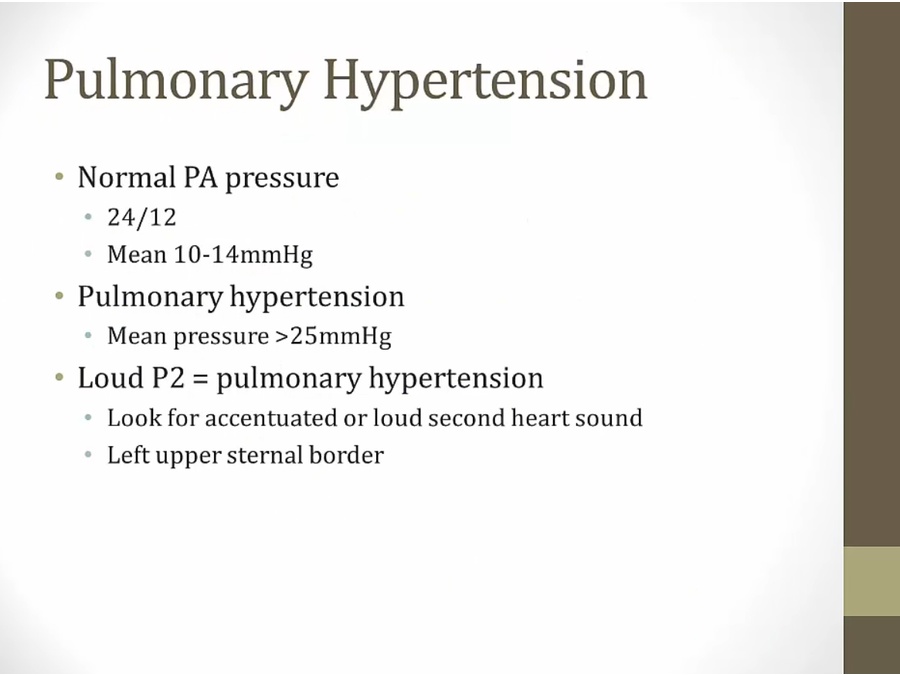
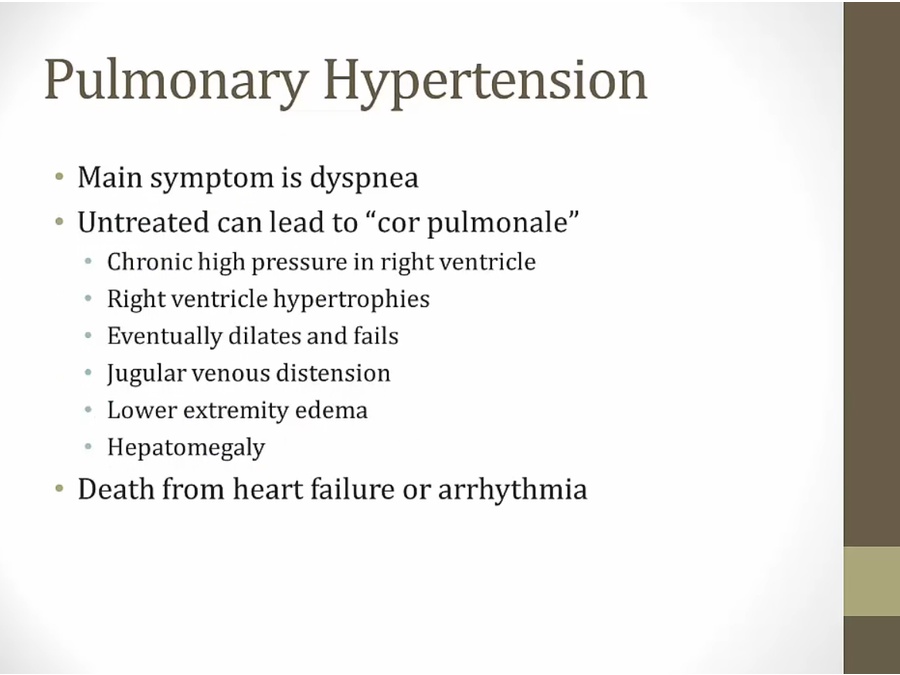
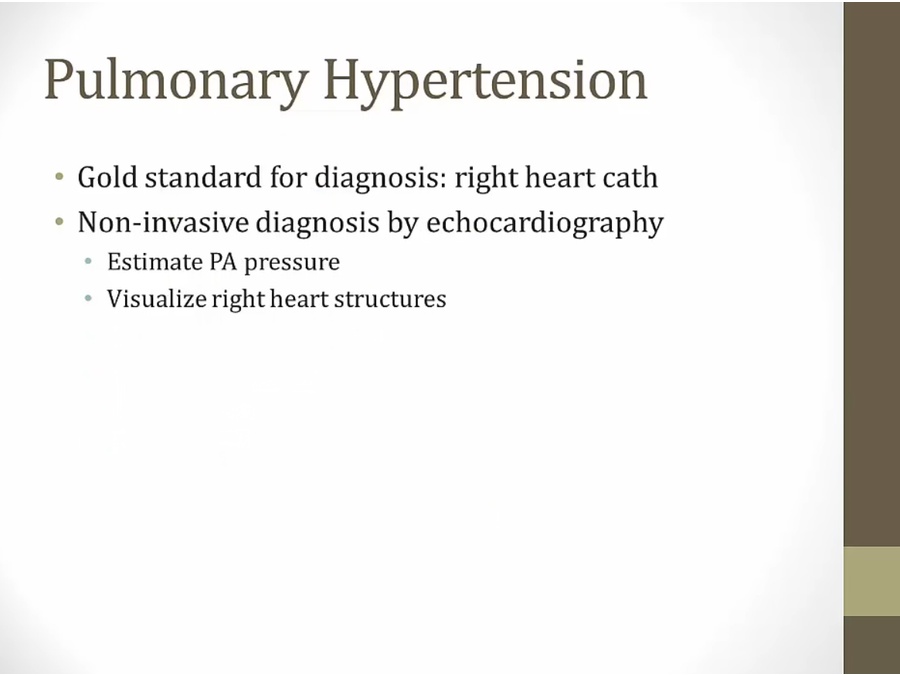
- right heart cath: cath into PA from heart
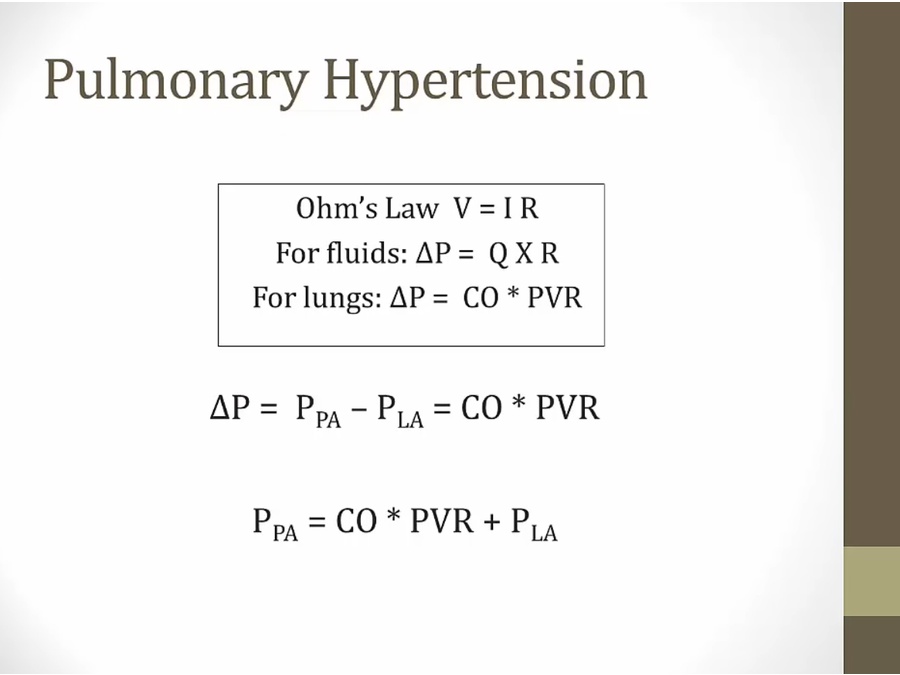
- V: energy needed to drive flow
- I: how fast you want to go
- R: resistance to flow
- Ppa high in pulmonary hypertension, if any of the variables increased
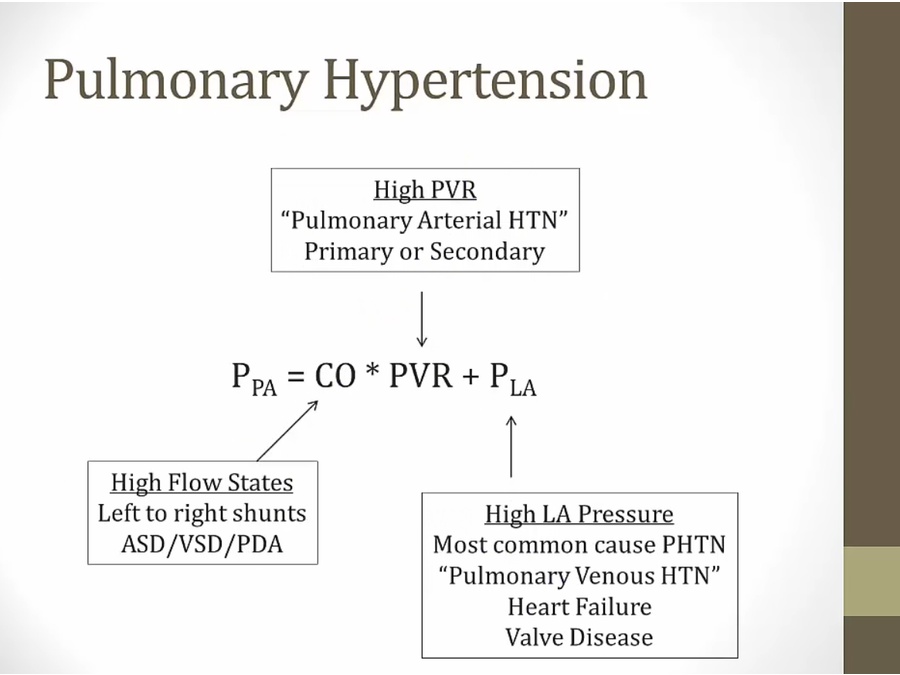
- high CO: increase flow through lungs
- most common cause of PHTN nothing to do with lungs but with left heart
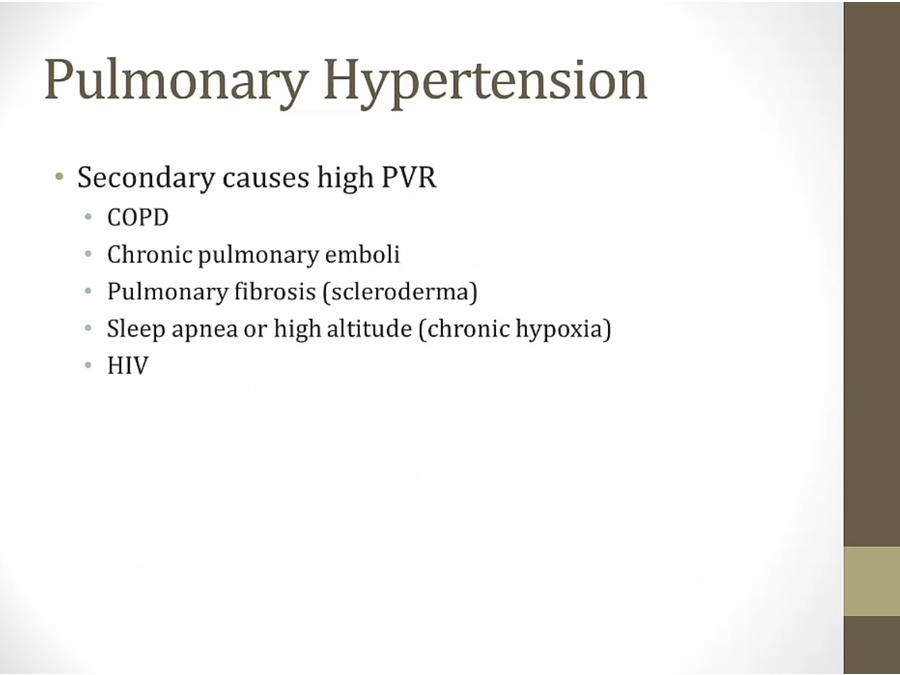
- chronic hypoxia vasoconstrict
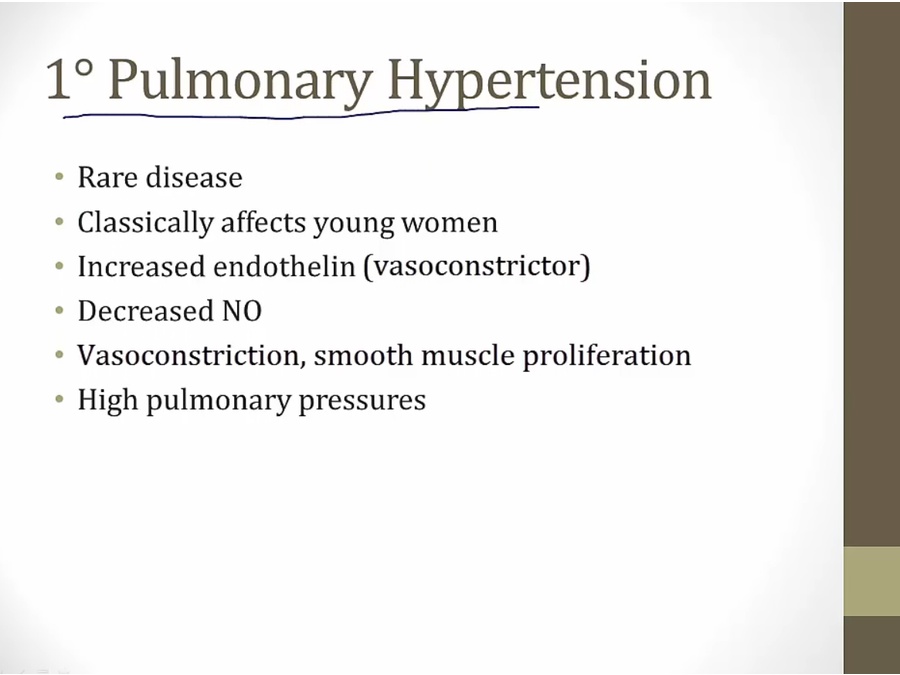
Links to this note
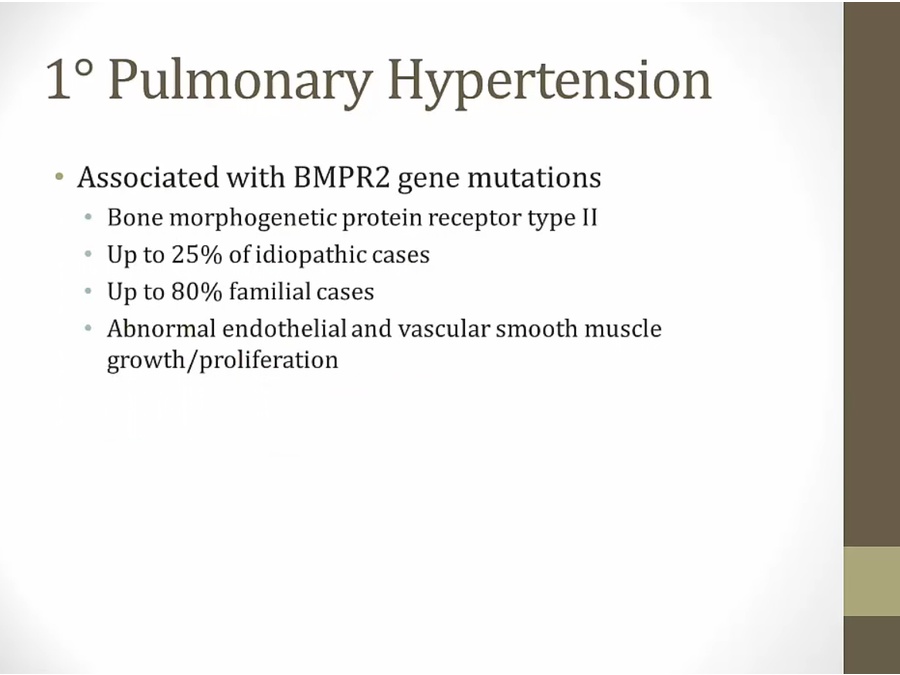
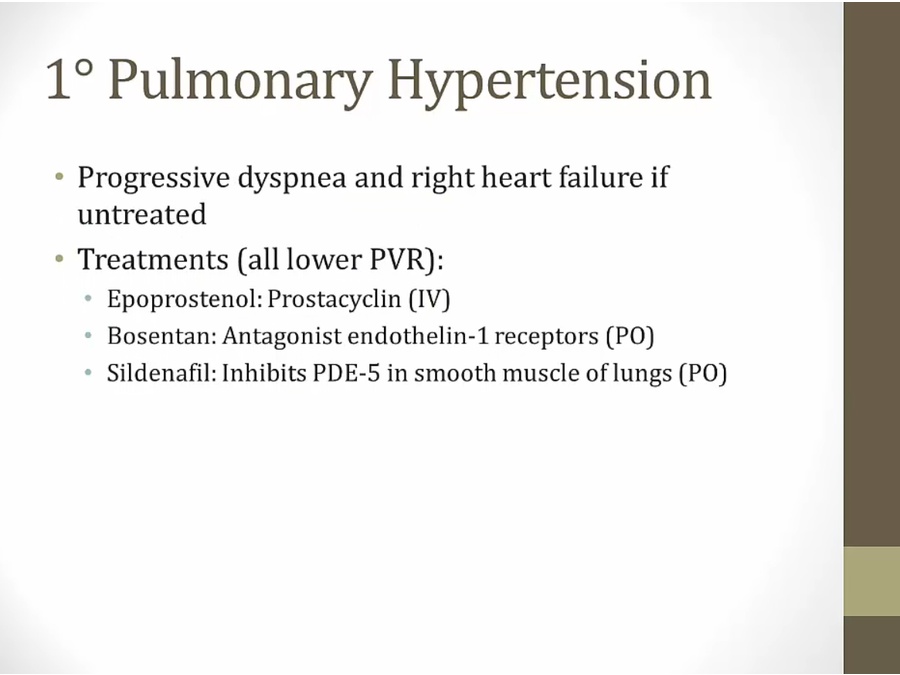
- Epoprostenol: IV, must infuse constantly, cumbersome